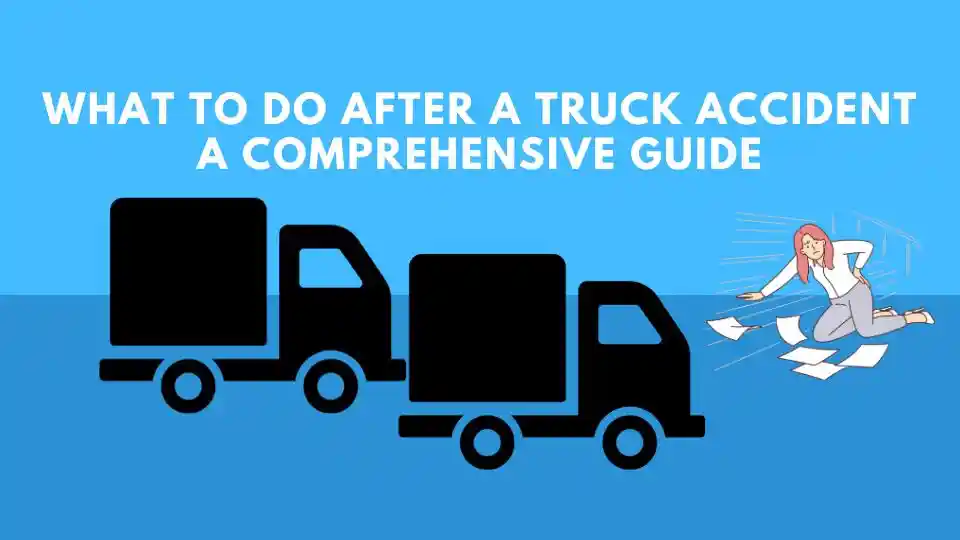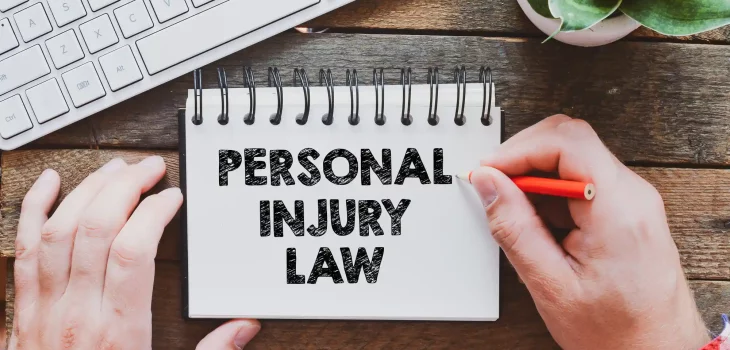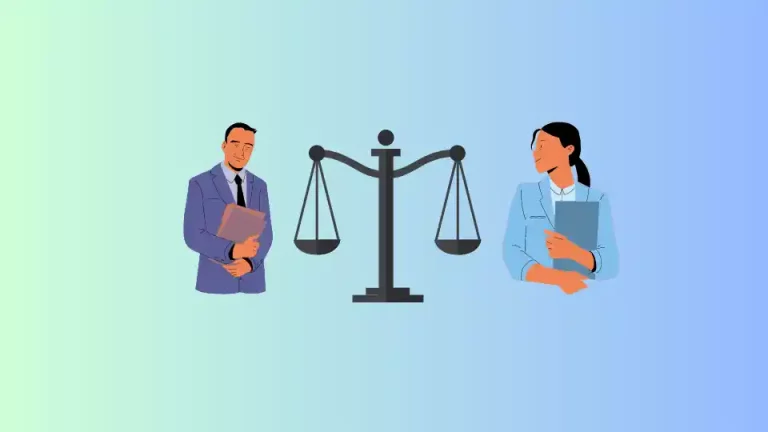What to Do After a Truck Accident: A Comprehensive Guide
Truck accidents can be devastating, both in terms of the damage they cause and the legal complexities that follow. Whether you’re a truck driver, a passenger in a car, or a pedestrian, knowing what to do after a truck accident is crucial for your safety and your legal rights. In this comprehensive guide, we’ll break down the steps you should take after a truck accident to ensure your well-being and protect your interests.
1. Ensure Safety First
The aftermath of a truck accident can be chaotic and dangerous. Your first priority should always be the safety of yourself and others involved. Follow these essential safety steps on what to do after a truck accident:
a. Move to a Safe Location: If possible, move your vehicle to the side of the road or a safe area to prevent further accidents or injuries.
b. Check for Injuries: Assess yourself and your passengers for injuries. If anyone is seriously injured, call 911 immediately.
c. Turn on Hazard Lights: Activate your hazard lights to alert other drivers of the accident.
2. Contact the Authorities
Promptly notifying the authorities is vital for documenting the accident and obtaining the necessary reports. Here’s what you should do:
a. Call the Police: Dial 911 or the local emergency number to report the accident. Police will arrive to document the scene and interview those involved.
b. Cooperate with Law Enforcement: Answer their questions honestly and provide all the required information. The police report will be valuable for insurance claims and legal proceedings.
3. Gather Information
Collecting information after a truck accident is essential for insurance purposes and potential legal actions. Make sure to obtain the following details:
a. Driver Information: Exchange names, contact information, and insurance details with the truck driver and other parties involved.
b. Truck Information: Note the truck’s make, model, license plate number, and company name, if applicable.
c. Witness Information: If there are witnesses, obtain their contact information as well. Their statements may be valuable in determining fault.
d. Accident Details: Document the time, date, location, weather conditions, and any other relevant factors that contributed to the accident.
4. Take Photographs
A picture is worth a thousand words, and in the case of a truck accident, it can be worth a lot more. Take clear, detailed photographs of the accident scene, including:
a. Vehicle Damage: Capture images of the damage to your vehicle, the truck, and any other involved vehicles.
b. Skid Marks: If applicable, photograph any tire marks on the road, as they can help reconstruct the accident.
c. Traffic Signs and Signals: Document the state of traffic signals, signs, and road conditions at the scene.
5. Seek Medical Attention
Even if you don’t feel injured immediately after a truck accident, it’s crucial to seek medical attention. Some injuries may not become apparent until hours or even days later. Follow these steps:
a. Visit a Doctor: Schedule an appointment with a healthcare professional to assess your condition.
b. Document Injuries: Keep records of all medical evaluations, treatments, and expenses related to your injuries. This information will be necessary for insurance claims.
6. Notify Your Insurance Company
Contacting your insurance company promptly is a crucial step in the process. Inform them about the accident and provide the necessary details:
a. Report the Accident: Call your insurance company and inform them of the accident, providing all the relevant information you’ve collected.
b. Follow Their Guidance: Your insurance company will guide you through the claims process, including the submission of evidence and documentation.
c. Be Cautious with Statements: Be truthful when providing information but avoid admitting fault or speculating about the accident’s cause. Let the investigation determine liability.
7. Preserve Evidence
To strengthen your case, preserve evidence related to the accident. This can include:
a. Vehicle: Keep your vehicle in its current condition until the insurance company can assess the damage. Don’t make any repairs or alterations without permission.
b. Medical Records: Maintain a file of all medical records, bills, and receipts related to your injuries and treatment.
c. Correspondence: Save all emails, letters, and other communication related to the accident, including interactions with insurance companies and healthcare providers.
8. Consult with an Attorney
Truck accidents often involve complex legal issues, and it’s wise to consult with an attorney, especially if the accident resulted in severe injuries or fatalities. Here’s what you should consider:
a. Legal Consultation: Contact an experienced attorney who specializes in personal injury or truck accident cases. They can help you understand your rights and options.
b. Case Evaluation: Your attorney will evaluate the circumstances of the accident, gather evidence, and assess your potential for a legal claim.
c. Representation: If you decide to pursue legal action, your attorney will represent you and negotiate on your behalf with insurance companies or in court.
9. File an Insurance Claim
Filing an insurance claim is a crucial step in recovering compensation for your losses. Work closely with your insurance company to ensure a smooth process:
a. Gather Documentation: Provide all the necessary evidence and documents to support your claim, including the police report, medical records, and photographs.
b. Follow Deadlines: Adhere to any deadlines set by your insurance company to avoid delays in processing your claim.
c. Negotiate Fairly: Be prepared to negotiate with the insurance company to ensure you receive a fair settlement. Your attorney, if involved, can assist in this process.
10. Understand Your Rights
It’s essential to know your rights as a victim of a truck accident. Familiarize yourself with the legal concepts that can affect your case:
a. Liability: Understand how liability is determined and the potential parties responsible for the accident.
b. Compensation: Learn about the types of compensation you may be entitled to, such as medical expenses, lost wages, and pain and suffering.
c. Statute of Limitations: Be aware of the time limits for filing a personal injury lawsuit, as they vary by state.
11. Attend Legal Proceedings
If a fair settlement cannot be reached through negotiations with the insurance company, legal proceedings may become necessary. Here’s what you should expect:
a. Lawsuit Filing: Your attorney will file a lawsuit on your behalf, initiating the legal process.
b. Discovery: Both sides will gather evidence, conduct depositions, and exchange information relevant to the case.
c. Trial: If a settlement cannot be reached, the case will go to trial, and a judge or jury will determine the outcome.
Conclusion
A truck accident can be a life-altering event, but knowing what to do in the aftermath is crucial. From ensuring safety and gathering information to seeking medical attention and consulting with an attorney, following these steps will help protect your well-being and your legal rights. Remember that every accident is unique, and seeking legal advice early on can make a significant difference in the outcome of your case.








One Comment